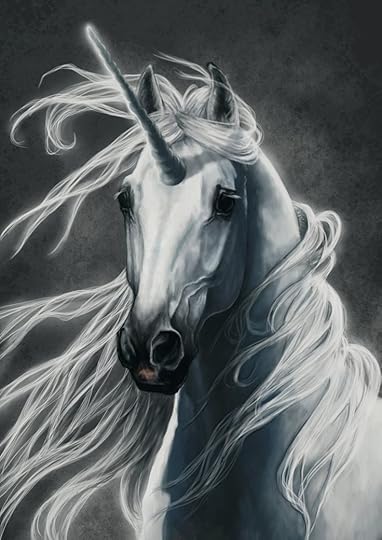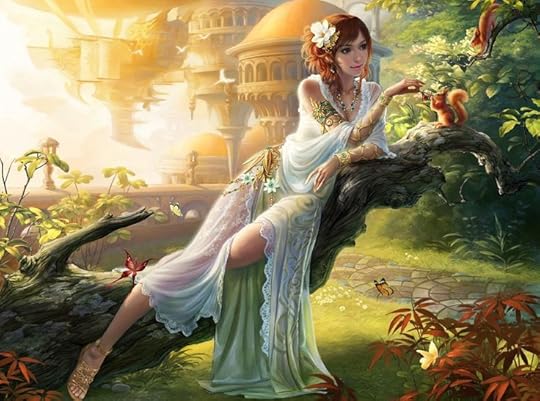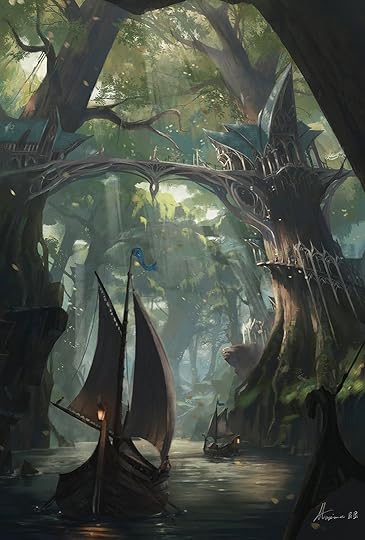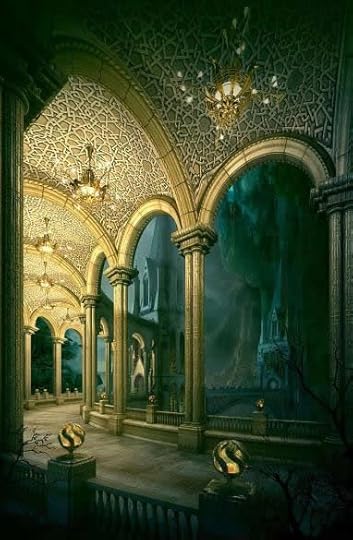On Historical Perspectives in Fantasy and Our Modern Expectations

(Note: I have borrowed all of these images and have not a whit of claim to them.)
This is a discussion I’ve seen around the blogisphere a lot lately — why so much high fantasy, urban fantasy, and science fiction is sexist and prejudiced. I have several thoughts on the issue (and, necessary disclaimer, some of them might not be popular).
Well, for the first part, I can concretely say: Most high fantasy is based on approximately the 11th-17th centuries A.D. of this actual world, which was a very sexist and discriminatory time period. Sorry, not sorry, folks, it’s just the truth.
And in urban fantasy, generally it’s because the authors are reflecting the current state of affairs in our culture, and they have their reasons for doing so.
When it comes to science fiction — well, the first reason often applies, but also, until very recently, sci-fi was a genre dominated by white male authors (again, not suggesting anything, just stating a fact), so there was probably a sense of unwitting discrimination. (Meaning you have blinders on based on the society/culture you come from, and don’t realize you’re actually showing prejudice.)
Now, here’s what I think of people claiming so many of these series (some of them considered classics of the genre) are horrible and shouldn’t be read anymore in this “enlightened” era: That point of view is just wrong, and people need to stop pushing it.

And, no, I am not defending any kind of discrimination. I am defending the accuracy of history. Whether we like it or not, there are lots of very not-nice things in humanity’s past. If we cover these things up and act like they never happened, we are in danger of repeating them.
If we remove conversations on biracial marriages, or disabled people having worth, from our fiction, then we’re denying the achievements we’ve made in these areas. If we declare none of our characters need to be chauvinist, then readers won’t understand the significance of what the heroines have overcome.
If we, as authors, want to portray a world without these damaging ways of thought (hoping that one day it will reflect reality), then please do. I do. But we also need to leave the door open for characters who don’t agree with our own POV, so that readers know what could be, and why it may be dangerous.
We have a responsibility to state the facts, even when we don’t like them.

This probably won’t be a popular post, but I feel it’s a necessary one. (Refer to my previous posts on getting history right in entertainment to cement how strongly I feel about this issue.)
Part of the idea of society becoming more modern is that we become more tolerant of those who don’t share our opinions. There’s a huge, and vital, difference between not agreeing with someone else and believing they’re wrong, and literally attacking them to prove your philosophy is the more mature and civilized.
Guess which approach I hope wins out?



Daley Downing's Blog
- Daley Downing's profile
- 36 followers



